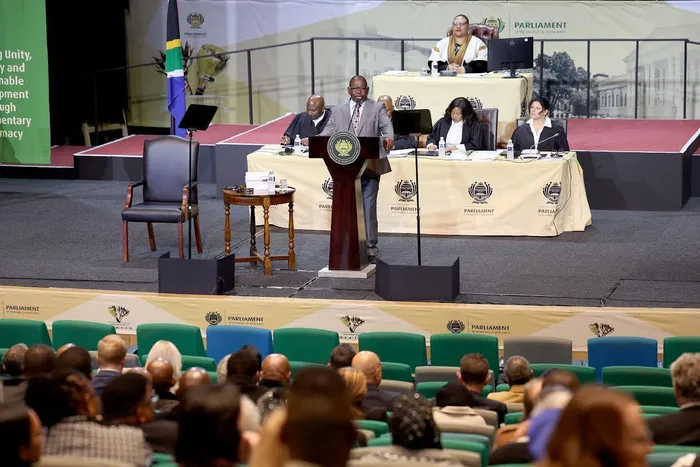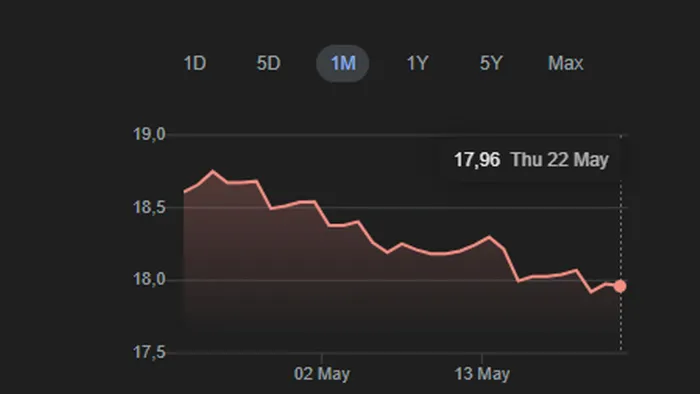
Finance Minister Enoch Godongwana delivers the Budget speech in National Assembly held at CTICC in Cape Town.
Image: Kopano Tlape/GCIS
Following Finance Minister Enoch Godongwana’s muted presentation of the National Budget, for the third time, on Wednesday, markets haven’t been seriously agitated, and the fiscal framework is being seen as broadly investor friendly.
The rand was stable early on Thursday morning at R17.97, after closing at a similar level after the National Budget was presented. It had opened at R17.89 on Thursday, which signifies no major movement. The JSE’s All Share Index, by late morning, was 0.56% down on the day, coming off its 1% gain and seven-day high at Wednesday’s close.
Old Mutual wealth investment strategist, Izak Odendaal, said the “decidedly uneventful” and “boring” National Budget was good and the financial market response was muted.

The rand was stable early on Thursday morning at R17.97, after closing at a similar level after the National Budget was presented.
Image: Morningstar
Godongwana proposals included limiting direct tax increases to so-called “sin” taxes, an increase in the fuel level, although he did say that gross domestic product (GDP) for the year would come in at 1.4% this year, down from a previously predicted 1.9%, markets haven’t moved dramatically.
At the same time, he said it was not an “austerity” budget, indicating that he did not seek to reduce expenditure dramatically. He did, however, warn that subsequent budgets would need to ensure that government received more revenue, and that government would continue to pay large amounts to service debt, which would amount to more than R1.3 trillion over the next three years.
South Africa’s two previous Budget attempts failed to gain approval because of proposed VAT hikes, and markets had been concerned over DA threats to leave the multi-party government.
Investec chief economist, Annabel Bishop, said that – with revenue and expenditure projections revised lower, and genuine potential for upside on revenue – the credit rating agencies are unlikely to react negatively.
Casey Sprake, economist at Anchor Capital said, post the National Budget, National Treasury has made a significant policy pivot by cutting R70 billion in spending over the period between fiscal 2026 and 2028, which offsets the lower revenue trajectory and helps stabilise the main budget deficit. “In an environment where fiscal credibility is under strain, such restraint is likely to be well received by financial markets,” she noted.
Odendaal said that the “key thing from investors’ point of view is that fiscal consolidation remains the priority”.
Sprake added that the 2025 National Budget is “broadly seen as marginally bond-positive and moderately supportive of the rand over the medium term, primarily due to its emphasis on expenditure restraint amid lower revenue projections”.
What is crucial, Sprake added, is that government has chosen to rein in spending rather than implement broad-based or distortionary tax increases which is “an approach that sends a constructive message to investors”.
Sprake did, however, question why “such a pragmatic version of the Budget could not have been presented in February, potentially sparing the economy the uncertainty and costs associated with months of policy indecision”.
Odendaal also noted that the 2025 National Budget represents broad policy continuity despite the various procedural disruptions. “The country is still trying to rein in borrowing and stimulate economic growth. Evidence that this is happening will be positive for market valuations and lead to improved credit ratings,” he said.
IOL
Related Topics: